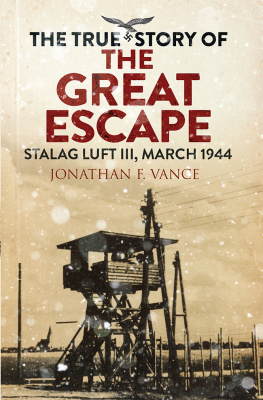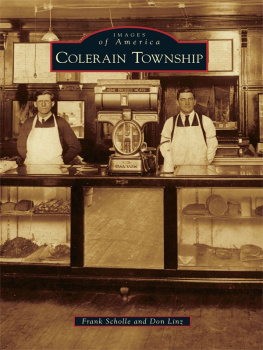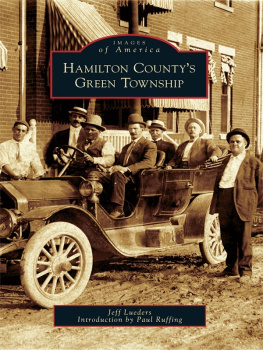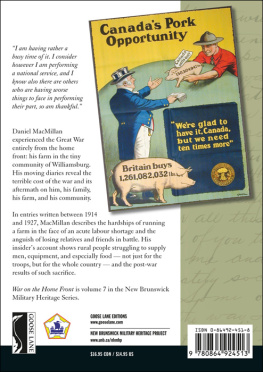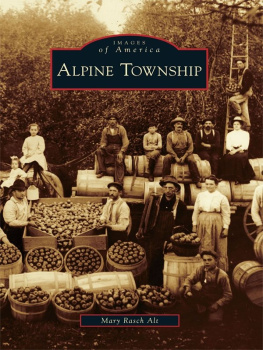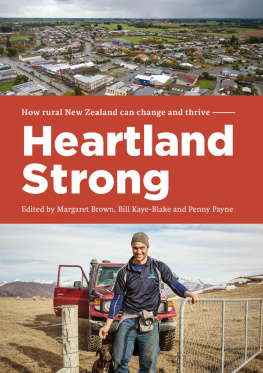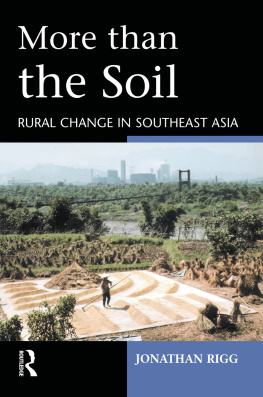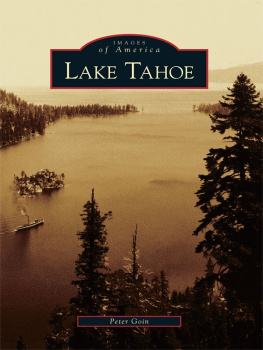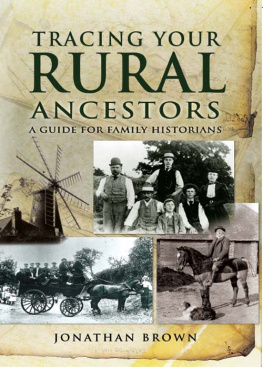

Wilfrid Laurier University Press acknowledges the support of the Canada Council for the Arts for our publishing program. We acknowledge the financial support of the Government of Canada through the Canada Book Fund for its publishing activities. The author and the Press acknowledge the assistance of the J.B. Smallman Publication Fund and the Faculty of Social Science, Western University. This work was supported by the Research Support Fund.

Library and Archives Canada Cataloguing in Publication
Vance, Jonathan F. (Jonathan Franklin William), 1963, author
A township at war / Jonathan F. Vance.
Includes bibliographical references and index.
Issued in print and electronic formats.
ISBN 978-1-77112-386-0 (hardcover).ISBN 978-1-77112-388-4 (EPUB).
ISBN 978-1-77112-389-1 (PDF)
1. East Flamborough (Ont.) History20th century. 2. World War, 19141918OntarioEast Flamborough. I. Title.
FC3099.F575V36 2018 | 971.352 | C2018-902962-5 |
C2018-902963-3 |
Cover design by Michel Vrana. Front-cover photo by Will Reid (authors collection); front-cover map shows a detail from a map of the County of Wentworth (authors collection). Back-cover photo by Will Reid: Waterdown, 1916 (authors collection). Text design by Lime Design Inc.
Jonathan F. Vance
This book is printed on FSC certified paper and is certified Ecologo. It contains post-consumer fibre, is processed chlorine free, and is manufactured using biogas energy.
Printed in Canada
Every reasonable effort has been made to acquire permission for copyright material used in this text, and to acknowledge all such indebtedness accurately. Any errors and omissions called to the publishers attention will be corrected in future printings.
No part of this publication may be reproduced, stored in a retrieval system, or transmitted, in any form or by any means, without the prior written consent of the publisher or a licence from the Canadian Copyright Licensing Agency (Access Copyright). For an Access Copyright licence, visit http://www.accesscopyright.ca or call toll free to 1-800-893-5777.
TO MY GRANDPARENTS,
Harold M. and Isabell (Fleming) Vance,
whose childhood was lived
in the shadow of war

CONTENTS

BEFORE
1914
1915
1916
1917
1918
AFTER
LIST OF ILLUSTRATIONS
A NOTE TO READERS
IN CHRONICLING THE EXPERIENCE of the township of East Flamborough during the First World War, I have been guided first and foremost by the archival documents, rather than by the history of the period as I know it and teach it. The 1910s was a tumultuous decade in Canadian history, and the war years particularly saw bitter conflict over a wide range of issues, including womans suffrage, French-language education in Ontario, prohibition, the nationalization of the railways, and industrial relations. Were I writing a general history of Canada during the Great War, these episodes would loom large.
But in East Flamborough, they caused scarcely a ripple at the time. The fortunes of industrial unionism were of no concern in a township without unions. French-language education was irrelevant for no one spoke French, much less wanted to be educated in French. I imagine that some people in East Flamborough were passionately concerned about votes for women, but in the archival record I could find no one who mentioned it, either privately or publicly. Not even the Waterdown Womens Institute was sufficiently interested in the subject to discuss the matter at its meetings.
The same might be said for a dozen other flashpoints that one might expect to find in a book set in Ontario during the First World War. They are important in the march of history, but there is absolutely no evidence that they were important to the people of the township at the time. Even conscription, which brought violence and bitterness to parts of Canada, looked very different in the villages and on the concession roads of East Flamborough.
This is a roundabout way of saying that anyone who writes about the past must always be sensitive to the voices they are reading. We must put aside what we think historical actors should have thought or must have been interested in, and instead let them tell us what their concerns actually were. I would certainly like to think that my ancestors in East Flamborough were wise enough and worldly enough to ponder things like the franchise, minority language rights, or social democracy, but I can find no evidence that they did. The state of privies in Waterdown, the likelihood that the Progreston dam would survive another winter, the price of a train ticket to Hamilton these were matters of real concern to locals. Regulation 17, the Ontario Temperance Act of 1916, or the missteps of the Hearst government, apparently, were not.
A historian must bring many qualities to the task. One of the most critical is humility. The voices of the past will tell us what was important to them; our job is to avoid assuming that we know better than they do.

Introduction Clare
THE DOOR TO THE RETIREMENT HOME closes behind me with a sort of vacuum whoosh, and I am struck by how quiet it has becomeas if the noise of a busy day in suburban Toronto has been sucked into a void. Classical music plays softly on the sound system and I hear the gentle click of billiard balls. Any other noise is swallowed up by the plush carpets and brocade upholstery. There are a few residents around the lobby, chatting or playing cards, but they seem to be outnumbered by the staff, who are all smiling, calm, and utterly unflustered. My work has taken me to a good many seniors homes, and my first thought is that the place must cost a fortune. My second is that, since one must grow old, this wouldnt be a bad place to do it.
I follow the hallway around to the left and eventually come to a door adorned with a little straw and flower arrangement. Even my knock sounds muffled and there is no noise coming from inside the apartment to suggest that anyone is home. Im a little startled when the door opens. The man before me is small and very neatly dressed in a striped golf shirt and a chunky bolo. His glasses are stylish and obviously new, and his steel grey hair is perfectly combed. He offers his handthe skin is thin, almost papery, and covered with blemishes. But what strikes me most powerfully are his eyes. Although he dabs them with a handkerchief, they are clear and bright, with the kind of piercing gaze of a person who has seen much. And the man before me has seen more than most people. At age 102, Clare Laking is the last of the residents of the southern Ontario township of East Flamborough who went away to the First World War.
Next page

